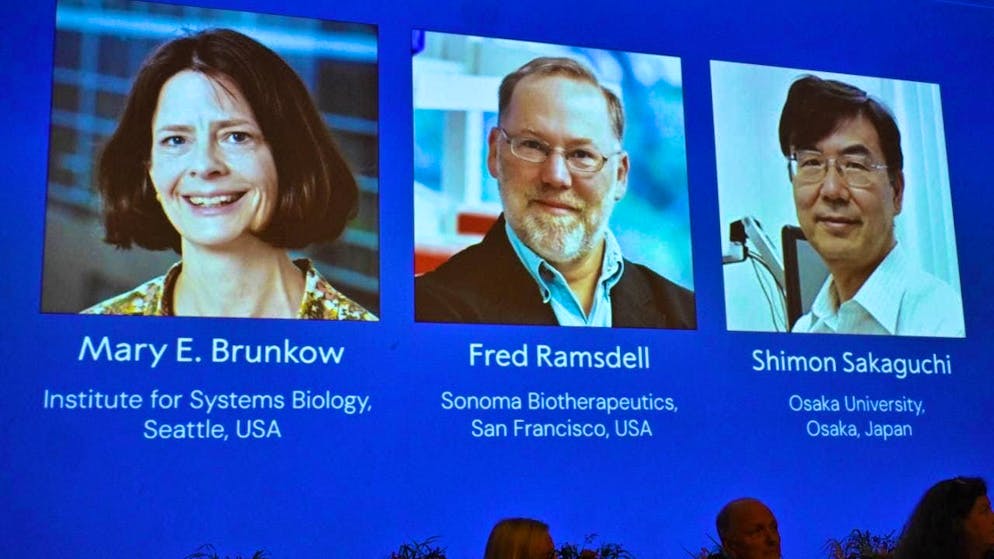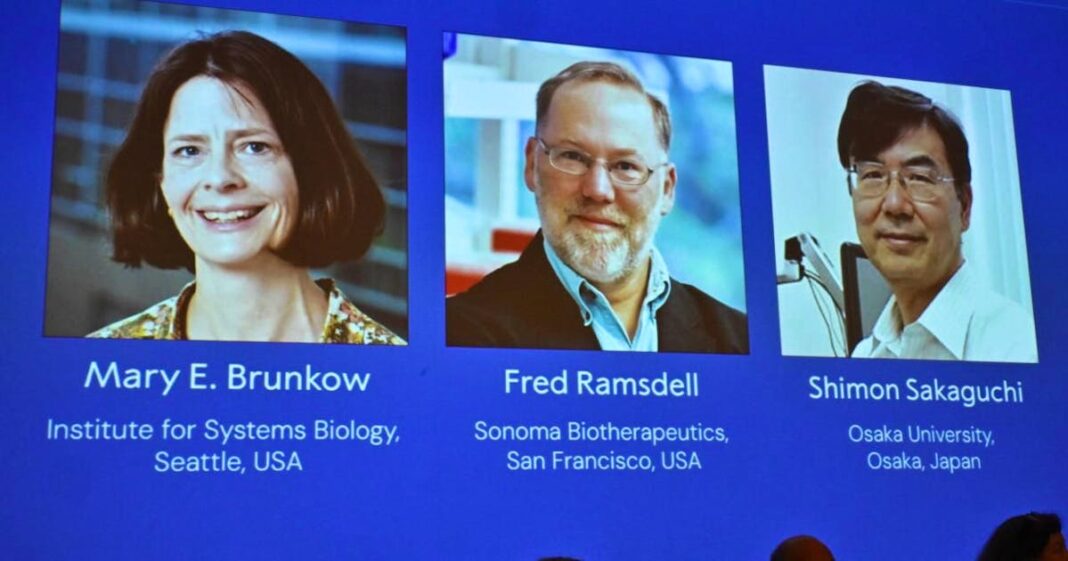
Keystone
This year’s Nobel Prize for Medicine has been awarded to Mary Brunkow, Fred Ramsdell (both from the USA), and Shimon Sakaguchi (Japan). They are recognized for their groundbreaking work on peripheral immune tolerance, a mechanism that prevents the immune system from attacking the body itself. This prestigious announcement came from the Karolinska Institute in Stockholm, and with it, they are honored with a cash prize of 11 million Swedish crowns, roughly equivalent to one million euros.
Foundation Stone for a New Field of Research
The discoveries made by these researchers have laid the groundwork for a new field in biomedical science, greatly influencing how we approach treatments for complex conditions such as cancer and autoimmune diseases. They focused particularly on the mechanisms that enable the immune system to differentiate between harmful invaders and the body’s own tissues.
The laureates identified critical safety mechanisms of the immune system, especially regulatory T cells, which play a vital role in preventing immune responses that could harm the body. Olle Kämpe, Chairman of the Nobel Committee, remarked, “We now have a better understanding of how the immune system operates and why not everyone develops serious autoimmune diseases.”
Diverse Academic Backgrounds and Contributions
Mary Brunkow, born in 1961, earned her doctorate from Princeton University and currently works at the Institute for Systems Biology in Seattle. Fred Ramsdell, aged 64, hails from Illinois and completed his PhD at UCLA; he is now a scientific advisor at Sonoma Biotherapeutics in San Francisco. Meanwhile, Shimon Sakaguchi, 74, received his doctorate in Kyoto in 1983 and is a professor at Osaka University.
The achievements of these scientists contribute to the ongoing narrative of advancements in immunology, adding depth to the understanding of how our immune systems function. This year’s award also highlights the underrepresentation of women, as only 13 female recipients have been honored since the prize’s inception in 1901.
A Historic Context of Nobel Laureates
To put this year’s award in context, the Nobel Prize for Medicine has been awarded to a total of 229 individuals since its establishment, with the first ever awarded to German bacteriologist Emil Adolf von Behring for his work on diphtheria treatment. Other notable recent winners include geneticists Victor Ambros and Gary Ruvkun, who were acknowledged for their groundbreaking discovery of microRNA, unveiling a previously unknown principle of gene regulation.
Upcoming Nobel Award Ceremonies
The Nobel Prize series continues with the announcements for Physics and Chemistry set for the coming days, followed by Literature and Peace prize announcements. The grand finale will occur next Monday when the Nobel Prize for Economics, established by the Swedish central bank, will also be revealed.
Tradition of Ceremony
The ceremonial presentation of all Nobel awards occurs on December 10, commemorating the anniversary of Alfred Nobel’s death in 1896. This customary event celebrates not just the laureates but also the enduring impact of Nobel’s vision on the fields of science, literature, and peace.



